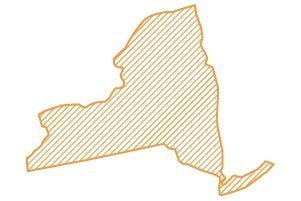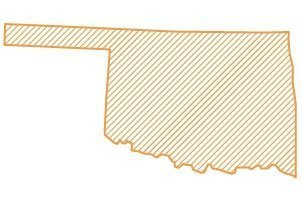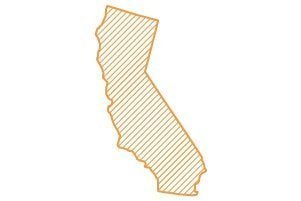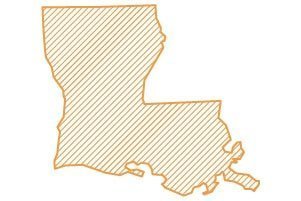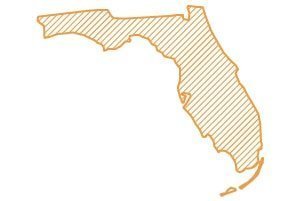The state of Texas currently offers five distinct master’s degrees in library and information science. All of these programs are ALA-accredited, ensuring that the completed degree will allow graduates to lead in library settings. Many of these degrees also offer online modalities, providing students the flexibility to complete the programs in their communities.
To see more reasons why Texas is a great place for future librarians and those pursuing a degree in library and information science, let’s look at the library programs and opportunities for librarianship within the state. We will also examine the salaries associated with various types and levels of librarianship, as well as additional benefits for individuals pursuing a library degree or a librarian position in Texas.
Library Science Programs Currently Accepting Texas Applicants
ALA Accredited Programs Masters in Library and Information Science (MLIS) in Texas
The American Library Association (ALA) provides the standard certification to master programs in Library Science. Many library systems, whether they be academic, public, or special libraries, require an MLS or MLIS from an ALA-accredited program in order to become a librarian. This is definitely true of the state of Texas. Thankfully, Texas provides three great programs that are ALA-certified.
University of North Texas: Masters in Library and Information Science (M.S.)
The University of North Texas offers a master’s degree in Library Science (M.S.). Within their program, they offer concentrations of study including, general library information, archival studies and imaging technology, information organization, law librarianship, legal informatics, music librarianship, youth librarianship, and school library certification. Two of their concentrations are ranked nationally in the top 10, and their library and information science programs are also ranked nationally in the top 10 library science programs.
- ALA Accredited
- Offers seven concentrations
- Offered online, in-person, and hybrid
- 36-hour program plus a 120-hour internship involving library science
How to Apply
Before you can apply, you will need at least a 3.0 in a 4.0 system for the last 60 semester hours in an undergraduate program or higher to qualify. Also, check with an admissions advisor to know more about admission tests and if one is required for the program.
Then send in your application, application fee, and official transcripts to:
Toulouse Graduate School
1155 Union Circle #305459
Denton, TX 76203-5017
The University of Texas at Austin: Master of Science in Information Studies (MSIS)
The University of Texas at Austin’s Master of Science in Information Studies focuses on innovative thinking, learning, and using new technologies to best serve a dynamic culture and organize information and analyze human activities. Also, four of their information studies programs ranked tenth or higher nationally.
- Many flexible areas of study within the degree include informatics, human-computer Interaction, user experience (UX), research and design, health informatics, information security, privacy, and policy, human-centered AI and data science, data engineering, information organization, and access, information retrieval and search, curation and preservation, archives and records management, librarianship, and information literacy
- 75% of graduates secure a job within two months of graduation with a $50,000 starting pay
- 36-hour program including a capstone
- Classes are online, in-person, and hybrid
- ALA-accredited
How to Apply
To qualify, you must have a bachelor’s degree and a 3.0 GPA in all junior and senior level courses from upper division and graduate level coursework. To apply you will need to submit three letters of recommendation, a statement of purpose, and answer three short answer questions on their admission site. You will also need an official transcript from each college attended, a resume, and to fill out an application and pay the application fee.
No GRE test scores are required for admission in Fall 2023.
Texas Women’s University: Master of Library Science (MLS) and Master of Arts in Library Science (MA)
The Texas Woman’s University has two similar master’s programs that ALA accredits. You can receive an MLS and MS in Library Science. Both of which are comparable to a Master in Library and Information Science (MLIS).
- ALA-accredited
- Online Programs
- 36-hour programs
- A cumulative B average must be obtained
- Additional certifications in school librarianship, and health science librarianship.
How to Apply
To qualify, you must have a GPA of 3.0 or higher from the last 60 semester hours, and you must hold a bachelor’s degree. To apply, fill out the online application form, send in official transcripts from all colleges attended, and GRE scores if required for the program. Check with admissions for updates on admission testing requirements.
Bachelor Programs in Information Science in Texas
A bachelor’s in information science (BSIS) is a good degree to hold whether you want to later pursue a master’s in library science (MLS) or if you want to broaden your scope of careers rather than earning a degree that has a limited number of career opportunities.
University of North Texas: Bachelor of Science in Information Science (BSIS)
The University of North Texas is the only University in Texas with a Bachelor in Information Science, and its information studies department is ranked nationally among other Library and Information Science Programs.
- Six program concentrations
- 120-hour program
- In-person program
How to Apply
To find out if you qualify for their undergraduate program, call their admissions department. To apply, fill out an online application, send in official transcripts from all high schools attended, pay the application fee, and submit official SAT or ACT scores.
Doctoral Programs in Texas for Library and Information Science
Both the University of Texas at Austin and the University of North Texas have Doctoral programs in Library and Information Science. Both schools of information science are ranked high nationally for their MLIS programs, and both schools are accredited by the American Library Association (ALA).
If you hold a Ph.D. in Library and Information Science, you will qualify for higher librarian positions, especially among academic librarians. You can also become a highly qualified researcher for library and information technologies to further the work and research for information science. Additionally, you can become a professor in library and information programs at colleges and universities.
The University of Texas at Austin Ph.D. in Information Studies
This program focuses on research in the field of information. They are continually receiving grants to learn and utilize new technologies to pass on to their doctoral students so that those students can teach other librarians and their communities.
In the program, you will complete a dissertation and defense of it. You will submit research to two peer-reviewed scholarly journals, and complete 39 hours of coursework.
How to Apply
To qualify all you need is a 3.0 from a bachelor’s program and you may need to take the GRE. However, this requirement is currently waived. You do not need a master’s to qualify.
To apply, fill out the online application, pay the application fee, and send in a Statement of Purpose, and three letters of recommendation.
The University of North Texas’ Information Science Ph.D. Program
The University of North Texas has the nation’s largest Ph.D. program in the nation within the Information Science discipline. They also provide concentrations or dual degrees in the following areas: Consumer behavior and experience management, Cybersecurity, Data Science, Geospatial information systems, Health informatics, Journalism, and Linguistics
How to Apply
To see if you qualify and to see what the School of Information requires for admissions, talk to an admissions concealer for the College of Information. Then apply online.
How to Become a Librarian in Texas
To become a librarian in Texas you must hold either an MLIS, MLS, or MA in library and information science from a program accredited by the American Library Association. Most library positions do not require anything above a master’s unless you want to publish research or teach in universities. Also, if you want to be a school librarian, you will need a teaching certificate from the state of Texas and receive a degree that is CAEP certified.
If you want to be a library technician or assistant, then you only have to have a high school degree and some experience working in the library setting. Many libraries have part-time positions you can get to receive some understanding. Library assistants are the workers who are mostly at the front desk and are the ones who interact with the library patrons. They are the workers who do the majority of helping library users check in and out books, take care of library fines and set up library cards.
What Else Can You Do with a Library Science Degree in Texas?
Many Americans and people from across the globe are moving to Texas because of its economy and numerous job prospects. It is the ninth-largest economy in the world. Its unemployment rate is 4%, and it leads the nation in annual job growth rate. Furthermore, this past September, Texas added 50 new job project locations and its sales tax revenue went up 17.2%.
Texas loves its history and is dedicated to preserving it and making Texas history and culture available to Texans and anyone with the desire to learn more about our second-largest state. Therefore, librarians are welcome as archivists and researchers for the Texas Historical Commission and its library.
Salary Opportunities in Texas for Librarians
Librarians have a multitude of opportunities in Texas. There are different types of library jobs and various income-level positions. Also, because there are multiple levels in librarianship, there are many ways to move up in the library career field.
If you want to become an academic librarian, central Texas is home to seven top-tier colleges and universities. Central Texas is also one of the fastest-growing community areas and is known for its diversity in careers and jobs because of the vast number of roadways, railways, and airports.
In North Texas, there are 12 public libraries and they all are a part of the North Texas Library Consortium. North Texas is considered the Dallas and Fort Worth Area. It’s the fourth-largest metropolitan area in the United States. They are also known to be an area of good employers that promote a high level of work life. Plus, they have a lower cost of living and low taxes for such a thriving economy. They are also home to aerospace and aviation organizations and a large tech manufacturer.
Here is a list of typical positions and their average salary in Texas:
Public, Academic, and School Librarians
- Full-time library assistants or technicians make an average of $26,420 annually
- Professional Librarian or Media Specialists make on average $61,190 annually
Archivist
- Museum and History Archivists make on average $50,120 annually
Libraries in Texas
Texans also love their libraries and the preservation of their history and heritage. They have 869 public libraries and 11 bookmobiles throughout the state. The Texas Historical Commission Library also holds the state, city, and county histories. The library also holds slides and photos of historical buildings and locations and information on the archeology and architectural contributions of the state.
Additional Resources:
If you are looking to move to Texas and want an easy transition, visit https://www.texas.gov/moving-to-texas/
For more information on Texas Historical Commission and Library visit https://www.thc.texas.gov/about-us/texas-historical-commission-library
For more information on the libraries in Texas visit https://txla.org/
For more information about librarianship and Library Science visit ala.org.
For more information about The School Library Media Specialist Degree and Certification visit https://www.ala.org/ala/aasl/


